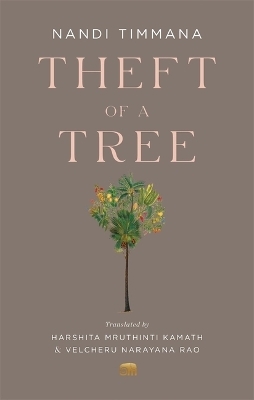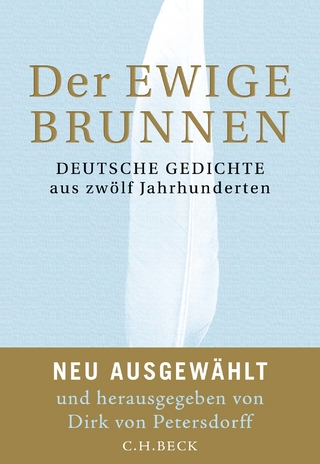
Theft of a Tree
A Tale by the Court Poet of the Vijayanagara Empire
Seiten
2024
Harvard University Press (Verlag)
978-0-674-29591-9 (ISBN)
Harvard University Press (Verlag)
978-0-674-29591-9 (ISBN)
Nandi Timmana’s Theft of a Tree recounts how Krishna stole the wish-granting pārijāta tree from the garden of Indra, king of the gods, to appease his wife Satyabhama. This is the first English translation of the poem, which prefigures the modern Telugu novel with its unprecedented narrative unity.
The first English translation of a thousand-year-old story of Krishna and his wife Satyabhama, retold by the most famous court poet of the Vijayanagara Empire.
Legend has it that the sixteenth-century Telugu poet Nandi Timmana composed Theft of a Tree, or Pārijātāpaharaṇamu, to help the wife of Krishnadevaraya, king of the south Indian Vijayanagara Empire, win back her husband’s affections. Timmana based his work on a popular millennium-old Krishna tale.
Theft of a Tree recounts how Krishna stole the wish-granting pārijāta tree from the garden of Indra, king of the gods. Krishna takes the tree to please his favorite wife, Satyabhama, who is upset when he gifts his chief queen a single divine flower. After battling Indra, he plants the pārijāta for Satyabhama—but she must perform a rite temporarily relinquishing it and her husband to enjoy endless happiness.
This is the first English translation of the poem, which prefigures the modern Telugu novel with its unprecedented narrative unity.
The first English translation of a thousand-year-old story of Krishna and his wife Satyabhama, retold by the most famous court poet of the Vijayanagara Empire.
Legend has it that the sixteenth-century Telugu poet Nandi Timmana composed Theft of a Tree, or Pārijātāpaharaṇamu, to help the wife of Krishnadevaraya, king of the south Indian Vijayanagara Empire, win back her husband’s affections. Timmana based his work on a popular millennium-old Krishna tale.
Theft of a Tree recounts how Krishna stole the wish-granting pārijāta tree from the garden of Indra, king of the gods. Krishna takes the tree to please his favorite wife, Satyabhama, who is upset when he gifts his chief queen a single divine flower. After battling Indra, he plants the pārijāta for Satyabhama—but she must perform a rite temporarily relinquishing it and her husband to enjoy endless happiness.
This is the first English translation of the poem, which prefigures the modern Telugu novel with its unprecedented narrative unity.
Harshita Mruthinti Kamath is the Visweswara Rao and Sita Koppaka Associate Professor in Telugu Culture, Literatures and History at Emory University. Velcheru Narayana Rao is the Krishnadevaraya Emeritus Professor of Languages and Cultures of Asia at the University of Wisconsin–Madison.
| Erscheinungsdatum | 31.01.2024 |
|---|---|
| Reihe/Serie | Murty Classical Library of India |
| Übersetzer | Harshita Mruthinti Kamath, Velcheru Narayana Rao |
| Verlagsort | Cambridge, Mass |
| Sprache | englisch |
| Maße | 133 x 203 mm |
| Gewicht | 197 g |
| Themenwelt | Literatur ► Lyrik / Dramatik ► Lyrik / Gedichte |
| Geisteswissenschaften ► Geschichte ► Regional- / Ländergeschichte | |
| Geisteswissenschaften ► Religion / Theologie ► Hinduismus | |
| ISBN-10 | 0-674-29591-9 / 0674295919 |
| ISBN-13 | 978-0-674-29591-9 / 9780674295919 |
| Zustand | Neuware |
| Haben Sie eine Frage zum Produkt? |
Mehr entdecken
aus dem Bereich
aus dem Bereich
Deutsche Gedichte aus zwölf Jahrhunderten
Buch | Hardcover (2023)
C.H.Beck (Verlag)
28,00 €
Text, Übersetzung, Melodien, Kommentar
Buch | Softcover (2024)
De Gruyter (Verlag)
24,95 €


